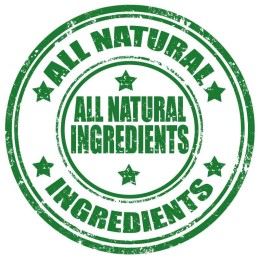Natural Products
What are “Natural” Products?
The backlash against scientific advances has resulted in a growing call for “natural” products. But what does “natural” really mean?
In many instances, “natural” labels go hand in hand with the phrase “chemical-free.” However, just about everything is a chemical—some are man-made and some are naturally occurring. There are far more natural chemicals than man-made chemicals.
Natural can also have a different connotation when talking about food. To some health and environmental activists, “natural” foods are those free of any products that have been genetically modified or man-made, like high fructose corn syrup. In these cases, a “natural food” label doesn’t actually tell consumers much information—scientists haven’t found any differences in the way the body processes genetically modified foods or high fructose corn syrup.
The U.S. Food and Drug Administration says on “natural” labels: “From a food science perspective, it is difficult to define a food product that is ‘natural’ because the food has probably been processed and is no longer the product of the earth. That said, FDA has not developed a definition for use of the term natural or its derivatives.”
Are “Natural” Products Safer?
The biggest problem with “natural” labels is that there are almost no regulations governing which products can be called “natural.” Many “all-natural” products still contain man-made additives—the label is largely a marketing ploy without any real meaning.
Health Canada notes that “just because a product is “natural” doesn’t mean it is safe for you to use.”
When it comes to supplements, herbal remedies, homeopathic medicines, etc., consumers should exercise caution. Many “natural” products can be very dangerous and even deadly. They’re also subject to few regulations in the United States. Herbal medicines, in particular, are often contaminated and contain ingredients not listed on labels.
While many chemicals can be toxic, thousands of toxicologists employed at companies, universities, and by federal and state governments help to ensure that we’re not exposed to chemicals that can actually harm us.
It’s also important to consider that for many chemicals, the danger is completely dependent on level of exposure. Remember that even a product as “natural” as water is deadly when consumed in extremely high amounts.

